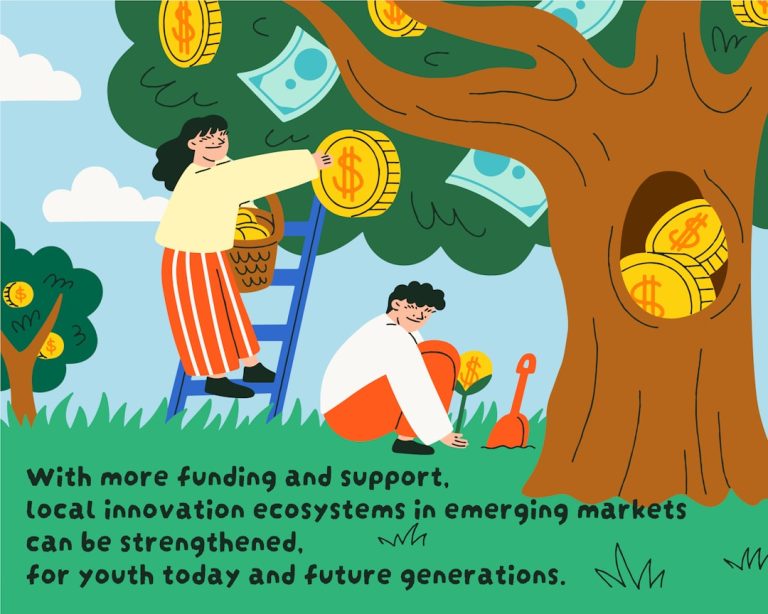SEO Meta Description: Discover expert strategies and key considerations for small capital investors to choose the right startup to invest in 2025.
Investing in startups has always been a captivating avenue for those seeking substantial returns. In the UK, angel investing is gaining momentum, especially for small capital investors aiming to make impactful investments in 2025. With the evolving economic landscape, technological advancements, and the rise of sustainable business practices, understanding the intricacies of angel investing in the UK is crucial for maximizing investment success.
Key Considerations for Angel Investing in the UK in 2025
Economic Trends
The UK economy in 2025 is marked by recovery and resilience. With declining interest rates and increased startup activity, venture capital funding has become more accessible, even for smaller investors. However, economic uncertainties persist, necessitating a thorough evaluation of a startup’s financial health and market demand before committing funds.
Technological Advancements
Technology continues to be a primary driver of startup success. Innovations in artificial intelligence (AI), blockchain, and automation are transforming industries. Startups that harness these technologies tend to be more competitive and scalable, making them attractive targets for angel investing in the UK. Fintech startups, in particular, are thriving by offering cutting-edge financial solutions that meet changing consumer needs.
Sustainability Practices
Sustainability is no longer a buzzword but a fundamental business principle. Startups that integrate environmental, social, and governance (ESG) criteria into their operations are more likely to attract both investors and customers. Balancing profitability with sustainable practices signals long-term viability, making ESG-focused startups appealing for angel investors in the UK.
Leadership and Team
A strong, experienced leadership team is a critical factor in a startup’s success. Investors should assess the founders’ expertise, industry knowledge, and their ability to execute the business plan. Startups with well-rounded teams, including technical, marketing, and financial experts, are better positioned for growth and resilience.
Market Timing
Timing can make or break a startup. Even the best ideas can falter if introduced to the market too early or too late. Angel investors should evaluate whether a startup’s product or service aligns with current market demands and future trends. Understanding consumer behavior and industry dynamics can provide insights into the startup’s potential for success.
Diversification
For small capital investors, diversification is essential to mitigate risk. Spreading investments across multiple startups increases the likelihood of achieving positive returns, even if some investments do not perform as expected. Equity crowdfunding platforms have made it easier for investors with limited capital to build a diverse portfolio by allowing smaller investments in various startups.
Major Challenges of Angel Investing in the UK in 2025
Market Saturation
The surge in entrepreneurship has led to a crowded marketplace, particularly in technology and e-commerce sectors. Identifying truly innovative startups with long-term growth potential becomes challenging amidst the competition. Angel investors must seek startups with unique value propositions and robust execution strategies to stand out.
Regulatory Changes
The regulatory environment for startups is continually evolving, especially in emerging industries like AI, cryptocurrency, and fintech. New policies can introduce unforeseen legal hurdles that impact a startup’s operations and profitability. Staying informed about regulatory trends is vital for assessing the sustainability of potential investments.
Valuation Volatility
Startup valuations can be highly volatile, influenced by market sentiment and economic conditions. Overvalued startups may struggle to deliver expected returns, posing risks for angel investors. It is crucial to critically evaluate a startup’s valuation to ensure it is backed by solid financial performance rather than speculative hype.
Startup Failure Risks
The inherent uncertainty in startup ventures means that many startups fail within the first few years due to various factors such as poor management or lack of product-market fit. Angel investors should be prepared for the possibility of losing their investment and should avoid investing more than they can afford to lose.
Liquidity Issues
Unlike publicly traded companies, startups often offer limited liquidity options. It may take years before an exit opportunity, such as an acquisition or IPO, becomes available. Investors must consider their investment timeline and financial goals, understanding that liquidity can be a significant constraint.
Trends to Watch for 2025
AI-Driven Startups
AI continues to dominate the startup ecosystem, with applications ranging from automation and customer service to predictive analytics. Startups that incorporate AI into their operations are more likely to achieve scalability and competitive advantage, making them attractive for angel investing in the UK.
Fintech Innovation
Fintech remains a hotbed for innovation, driven by the demand for digital payment solutions, decentralized finance (DeFi), and enhanced financial accessibility. Startups offering alternative banking services, AI-powered investment tools, and blockchain-based financial solutions are gaining substantial investor attention.
Health and Wellness
Health and wellness startups are experiencing rapid growth, fueled by increasing awareness of mental health, personalized medicine, and fitness technology. Companies developing AI-driven diagnostics or personalized nutrition plans are poised for success, presenting lucrative opportunities for angel investors.
Sustainability-Focused Startups
Eco-friendly innovations are attracting significant investments. Startups providing solutions for carbon reduction, sustainable packaging, and clean energy are aligning with both consumer preferences and regulatory requirements, making them compelling choices for sustainable angel investing.
Common Pitfalls to Avoid
Neglecting Due Diligence
Thorough research is paramount. Investors must evaluate a startup’s business model, market potential, and team expertise comprehensively. Skipping due diligence can lead to uninformed decisions and increased risk of investment loss.
Overlooking Exit Strategies
Understanding how and when you might realize returns is crucial. Without a clear exit strategy, investments can remain locked in longer than anticipated, affecting overall returns. Investors should discuss and agree upon potential exit routes before committing capital.
Emotional Investing
Decisions based on hype or personal biases rather than data-driven analysis can be detrimental. Maintaining an objective perspective ensures that investment choices are grounded in rational assessment rather than emotional impulses.
Additional Strategies for Small Capital Investors
Leverage Equity Crowdfunding
Platforms like Seedrs and Crowdcube democratize startup investing, allowing small capital investors to participate in equity crowdfunding. This approach facilitates diversification across multiple startups, reducing risk and enhancing the potential for returns.
Network Within Startup Communities
Engaging with entrepreneurial communities provides valuable insights into emerging opportunities and allows investors to assess startups firsthand. Building relationships within these networks can lead to better investment decisions and exclusive opportunities.
Stay Educated
Continuous education is essential for staying abreast of market trends, industry developments, and evolving investment strategies. Utilizing educational resources and staying informed empowers investors to make informed and strategic investment choices.
Conclusion
Angel investing in the UK in 2025 offers a wealth of opportunities for small capital investors. By understanding key considerations, navigating challenges, and staying attuned to emerging trends, investors can strategically position themselves to support promising startups while achieving meaningful returns. Education and due diligence are your allies in this dynamic investment landscape.



